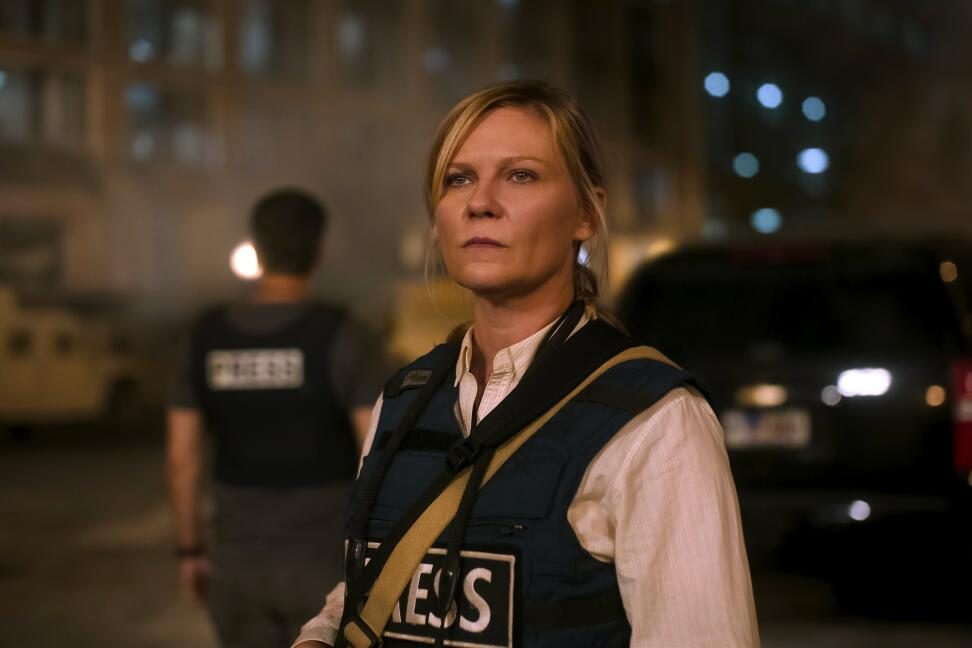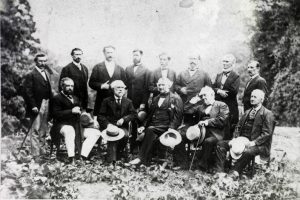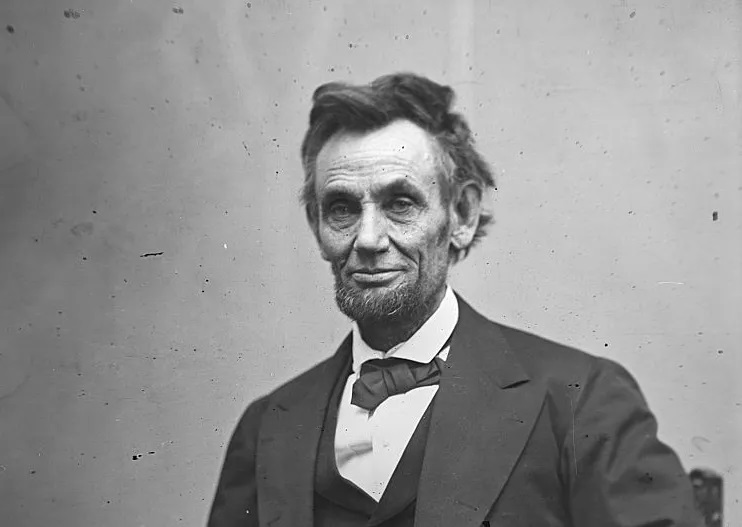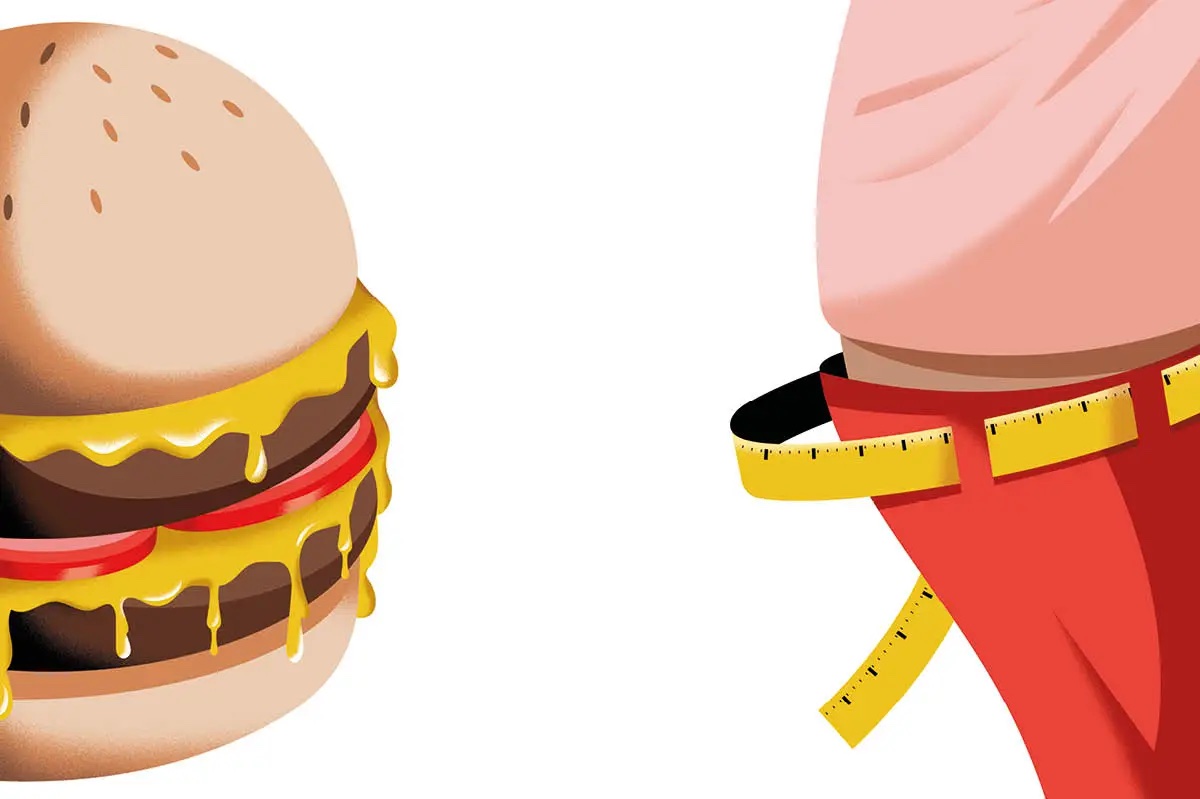If you make the mistake of following journalists on Twitter, you would think that Civil War is the most talked about film of the year. It’s not — and the over-coverage it’s been receiving isn’t because it’s particularly amazing or outrageous or riské or inflammatory. It did reach number one at the weekend box office, but on a quiet weekend, competing with third-week tickets for Godzilla x Kong: The New Empire.
No, all the attention has come because Civil War is about journalism and there are few things we like talking about more than ourselves, despite few others being that interested. And so, here I am.
But more interesting than the film is the release strategy behind it, because it represents A24 taking a punt on far more expensive films than usual. The indie studio’s second biggest hit ever, Talk to Me, grossed $91.9 million globally on a $4.5 million budget, despite opening just a week after Barbenheimer. Civil War cost between $50 million and $75 million.
Despite costing fifteen times as much, Civil War is not even going to earn as much as Talk to Me, let alone be fifteen times as profitable. It’s not the sort of film that can really be a hit, and it’s become somewhat obvious that the finished project isn’t the film A24 was hoping Garland would make. But even so, it’s hard to think of the release as anything but a success for A24’s new approach.
To give some background; A24 was only founded in 2012, but despite this, the small studio has gathered a following and brand value unlike any other production and distribution house in Hollywood. Rather than fund $100 million+ blockbusters (as big studios such as Disney, Warner, Skydance etc. do) or release a large catalog of highly-commercial sub-$5 million horror pics, banking on the surprise megahits among them (like, most notably, Blumhouse), A24 instead produces and releases eighteen to twenty indie films per year, with budgets between $5 million and $20 million, made by talented upcoming directors with a strong artistic flare. The key is that they have some inherent commercial bite. They can have any subject or genre; so long as it’s somewhat accessible to a broad audience. It’s a formula that’s worked,
Just to select a smattering of their films over the past decade: Spring Breakers, Ex Machina, Hereditary, Midsommar, Priscilla, The Zone of Interest, The Iron Claw, Uncut Gems, The Whale, Room, Climax, Green Room, The Lobster, Moonlight, Swiss Army Man, Lady Bird, The Spectacular Now, The Rover, American Honey, The Farewell, The Last Black Man in San Francisco, The Tragedy of Macbeth, X, Pearl, Lamb, Men, Red Rocket, The Bling Ring, A Ghost Story, First Cow, Bodies Bodies Bodies, Saint Maud, Good Time, Past Lives, The Florida Project, Tusk, The End of the Tour, The Killing of a Sacred Deer, The Disaster Artist, Mississippi Grind and their biggest hit (and longest title), Everything, Everywhere, All At Once.
They’ve also made TV too; you may have heard of their show Euphoria. That’s an incredible run. The studio’s only real flop was David Robert Mitchell’s wonderful, odd yet unique Under the Silver Lake.
But with Civil War, A24 is trying a new strategy, one driven by their growing ambitions and a changed film market. Namely, as studios have spent all their money producing either mega-budget blockbusters, low-budget horrors or streaming slop, they’ve left an empty lane for sub-$100 million adult-audience popcorn flicks. That’s the niche A24 is trying to fill. Sure, they’ll still make the indies; but expect disaster films, monster movies, action flicks, sci-fi adventures, all with a smart, stylish, arthouse flair. With the right film, its formula that seems destined to win both box office and awards season. The irony is that, despite being the first film they’ve released with this approach, Civil War is the wrong film for it.
They’re marketing it as though Alex Garland had made an arthouse take on the Nineties action-disaster genre, complete with exploding national monuments and a viral, political twinge, courtesy of its civil war theme during an election season. That film would have leaned into partisan tensions — and shown more realistic paths to secession, of the kind that David French warned of in his 2020 book, Divided We Fall. Incidentally, that would have been better title than Civil War too.
The film consciously isn’t that; and had Civil War flopped, you imagine A24 would have stayed the path, but just been more selective on the films it chooses. But, surprisingly, audiences appear to trust A24 enough that it’s paying off; even though people are walking out with a general “meh” response. Its opening Friday was A24’s strongest ever, and it finished the weekend with a $25.7 million North American box office; very high for a slow, talky, R-rated political thriller.
Once you add in streaming licenses and international sales, it will easily recoup its budget — and may even turn a modest profit. So just imagine how well this approach will work when they actually have a great, commercial film to work with? Say, Monkey Man.
And hey, if they want to really make a killing on Civil War, they can give it a rush edit and release it in China. The CCP would love nothing more than a film showing America falling apart.






















Leave a Reply